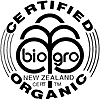“The Organic Trade Association supportsUSDA’s decision to end its Organic Recognition Agreement with Indiaand transition to a more active oversight approach. It is critical in international trade agreements that foreign governments have sufficient oversight, accreditation, compliance and enforcement control in place to ensure that their organic requirements are applied and enforced.Integrity in organic is our highest priority, and ensuring that all equivalency and recognition agreements are based on systems of comparable rigor and standards is key to maintaining that integrity.
The Organic Recognition Agreement is different from an Organic Equivalency Agreement. The U.S. has in place seven equivalency agreements – with Canada, EU, Japan, South Korea, Switzerland, Taiwan, UK. The U.S. has two other recognition agreements in place with Israel and New Zealand. An Organic Equivalency Agreement recognizes the organic standards and oversight systems of each trading partner as comparable and verifiable. Once an equivalency agreement is established, maintaining it is an ongoing process, with USDA?conducting regular onsite audits of the foreign government’s organic program. In an Organic Recognition Agreement, a foreign government accredits certifying agents in that country to the USDA organic standards, and these foreign certifying agents are authorized to certify organic farms and processing facilities to NOP standards for export to the USA. However, there is not always visibility or enforcement authority over certifiers and operations under recognition agreements.
Safeguarding against fraud throughout theglobalorganic system benefits the entire organic sector, and is absolutely essential in honoring the trust that consumers have in the Organic label. The USDA has given exporters in India a generous transition period of 18 months to recertify to an National Organic Program (NOP) accredited certifier, which should be adequate time to prevent any disruptions in the trade between our two countries.”
















